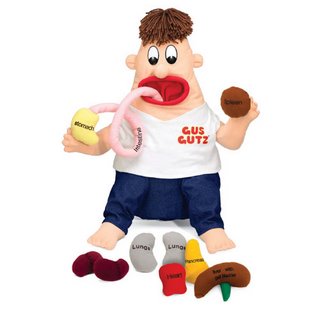There were two needled ports in me at all times and then various stickings along the way. One of the needled ports needed to be moved regularly to avoid edemas, but the edema came anyway, soft potatoes underneath the skin of my leg, up and down the sides and tops of my thighs. I had to avoid rolling on them. That needle brought the slow drip of the Zofran pump into my body. It was less a needle and more of a safety pin and was just as much fun to have poked into you. It was Michael's job to continuously do the resticking every twelve hours.
The Zofran pump is supposed to help. People would tell my mother who would tell me that the Zofran pump made all the difference for the women they knew, their daughters-in-law, their friends of a friend. But the Zofran had zero impact on me. Every time the home healthcare woman came to check on me, she'd up it and up it and up it. They'd call and check on me and they'd up it again from afar and they'd tell me stories about how they had been sick this way, too, and they forced themselves to eat a hamburger rather than have the naso-jejunal tube put up their noses. I didn't have a feeding tube yet. I was only a few weeks into the nightmare - not that I understood the passage of time. Not that I knew a difference between night and the darkness of day.
When I did get the feeding tube, that was my other port. It was TPN, Total Parenteral Nutrition, which sounds a lot like what it is. Your entire dietary needs come from a bag of thick, ivory-colored slop, through a portal in your arm, and tunneled into a vein that brings blood into the heart. That port required actually surgery, the first of my life, though really, it's probably more appropriately called a procedure. Either way, there were masks and quiet in the room, and before that, a promise from one of the nurses that it would be better after that.
It wasn't better after that, except I could try to find comfort in the fact that I wasn't dying from malnutrition and neither was my baby.
The last of the needles, they were the worst. Every six hours, I had to be pricked with a tiny, tiny, baby needle to check the toxicity of my blood. It was nothing. It's what every diabetic does all the time.
The irony is I used to have a weird pride in having my blood drawn as every phlebotomist who has ever come across my veins has remarked on them with wonder and admiration. They're big, plump, lovely veins - a runner's veins, coursing with blood and health and eternity. But the longer I was sick, the smaller and deeper my veins became. They withdrew, blaming me for the lack of water, for the lack of movement, the lack of everything wholesome.
And the prickers stopped admiring them, instead cursing my veins, calling other nurses in to try to find a point of entry, bringing in that one nurse from another floor who was always so good at pricking patients. She was a large, red-headed nurse and I feared her even though she was nice. I just knew she wasn't going to let me get away with not getting pricked. I begged and pleaded, but she took a cotton ball and "shined" me up, then pricked and pricked, finally using a butterfly needle in a small vein on the top of my hand.
I hated those butterfly needles the most because like everything else, they promised they wouldn't hurt as much.


















